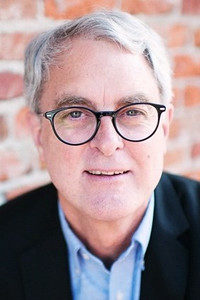Thinking About Homeschooling? The 2021 ICHE Conference is This Weekend!
Parents across the state and nation have had enough of the COVID-19 lockdowns and the cancellation of numerous conferences and other events. Thankfully, it looks like we are slowly getting back to normal. That said, some public school districts are still planning on limited in-person class time in the fall of 2021. Additionally, the Illinois State Board of Education and the Illinois Department of Public Health will also continue to require that students wear masks in schools.
But that’s not the worst of it.
Parents and grandparents have serious concerns about the deficiencies of public schools, including academic failings and the teaching of corrupt propaganda. Just this past month, state lawmakers mandated the teaching of “comprehensive” and “age appropriate” sex education that will begin in kindergarten. And in a sign of pure lunacy, state lawmakers overwhelming approved legislation to mandate taxpayer funding of menstrual hygiene products in all bathrooms in every government school building in Illinois. Yes, that includes boys’ bathrooms (4th grade and above).
The time has come to seriously explore Christ-centered educational opportunities for your children.
The annual Illinois Christian Home Educators’ conference is an excellent opportunity for parents and grandparents to explore the great option of homeschooling. A review of the event website (check it out for yourself here) reveals a broad lineup of speakers and subjects. Topics range from the practical to the inspirational to the philosophical.
Kirk Smith, Executive Director of ICHE points out that “there is no ‘one size fits all’ approach with homeschooling. At the ICHE conference, you will be able to hear a variety of approaches and be able to tailor your school experience to what best fits your values and priorities as a family.”
The ICHE Family Conference will be taking place this weekend: June 3-6 at Olivet Nazarene University.
Homeschool veterans agree on the centrality of home education in passing on their faith and values. “Homeschooling is really an extension of parenting. It’s the opportunity to teach and disciple our children with a degree of intention unmatched by other options,” writes Jonathan Lewis. “So if you want to be a better homeschooler—or a better parent—be sure to check out the ICHE Family Conference!”
As a veteran homeschool father myself, I agree with Kirk Smith who acknowledges that “so many dads and moms want to do parenting right but lack examples and resources. The conference will give them both.” This conference has been a tremendous blessing to my wife and me. I cannot recommend it highly enough.
So if you want to be a better homeschooler—or a better parent—be sure to check out the ICHE Family Conference! Check it out HERE.

 This year we are pleased to be featuring George Barna to share his faith, political insights and his most recent polling work regarding faith-based statistics, leadership and upcoming elections in the United States. You will not want to miss this opportunity to hear directly from what many call “the most quoted person in the Christian Church today.”
This year we are pleased to be featuring George Barna to share his faith, political insights and his most recent polling work regarding faith-based statistics, leadership and upcoming elections in the United States. You will not want to miss this opportunity to hear directly from what many call “the most quoted person in the Christian Church today.”

